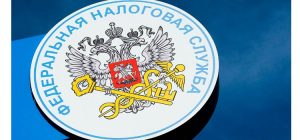How to open a foreign bank account that will not be closed due to the lack of confirmation of registration of this account in the tax
 Many foreign banks, which still open accounts for non-residents, are beginning to demand documents that taxes on amounts in the account as personal income have been paid. Some foreign banks are even starting to demand a certificate from the clients from the Russian Federation on the fact of informing the tax authorities of the Russian Federation about the existence of an account abroad. Naturally if
Many foreign banks, which still open accounts for non-residents, are beginning to demand documents that taxes on amounts in the account as personal income have been paid. Some foreign banks are even starting to demand a certificate from the clients from the Russian Federation on the fact of informing the tax authorities of the Russian Federation about the existence of an account abroad. Naturally if
A foreign bank account for the FTS lately is something like a red rag for a bull. Even if no irregularities are connected with this account, it is still necessary to check, and if you wish, to find inconsistencies. This logic can be guided by representatives of the Federal Tax Service in the field. However, the rules and laws at the federal level are fairly simple and straightforward. And if you want to open a foreign bank account, which then will not be closed by force and with penalties, these rules should be studied thoroughly.
Account of a resident of the Russian Federation in a foreign bank: to whom and when to file reports?
Currency and tax residency
The issue of residency determination is a key issue on which all subsequent actions will depend.
A tax resident is a person who has been in the territory of the Russian Federation for at least 183 days a year. Accordingly, in order to lose the status of a tax resident of the Russian Federation, it is necessary to spend more than 183 days abroad.
A currency resident of the Russian Federation is a person who lives in the territory of the Russian Federation or has spent no more than one year abroad (365 days). After this period, the status of the currency resident is lost. But it is enough to enter the territory of the Russian Federation for at least one day, the status of the currency resident will be restored again.
In the near future, the FTS and the Ministry of Finance plan to reduce the period of residence abroad for the loss of the status of a currency resident to six months. But for now these are only plans.
The currency legislation imposes on the resident the obligation to report on a foreign bank account, the tax legislation imposes paying taxes, respectively.
FTS told which currency transactions in foreign accounts will cause questions from the tax authorities
Foreign bank account: duties of a currency resident
So, in order not to have problems with government agencies, a resident of the Russian Federation who has opened an account in a foreign bank must notify the FTS within one month. You should also notify the tax authorities if the account (deposit) was closed or the details were changed.
Then you need to provide information on the movement of funds once a year. Individuals do this until June 1 of the following year. If a foreign bank account is used by an individual entrepreneur (PI) for a business, it is necessary to report on the movement of funds more often – once a quarter, within 30 days after its termination.
Is the smallest tax burden in Russia? It is a myth!
Foreign bank account: permitted and prohibited operations
There are a number of operations that are allowed by currency legislation, and their implementation does not harm your foreign account. Quite calmly, you can transfer funds from your Russian account to a foreign one (provided that the income is “clean”, and the FTS is notified of the opening of a foreign account). There will also be no suspicion of salary or travel, various insurance and social (including pensions) payments to a foreign bank account. You can receive interest on deposits and payments awarded by a foreign court (with the exception of international commercial arbitration). These requirements apply to bank accounts in all countries of the world.
There is also a separate list of permitted transactions for bank accounts in the countries belonging to the FATF and the OECD:
receiving loans in foreign currency;
income from a trust (if the trust is a non-resident of the Russian Federation);
income from the rental of real estate;
receipt of dividends on shares and coupon payments on bonds.
Before performing these operations with a foreign bank account, it is worth checking carefully: is a particular country a member of the OECD or FATF. Many jurisdictions that are popular among Russians (the same Cyprus, for example) are not included in these countries.
That is why you urgently need a foreign account: The Chamber of Accounts considers the FTS reporting unreliable, but tax authorities are only growing
Consequences of violation of currency and tax laws
In case of violation of the requirements of currency legislation, a resident of the Russian Federation is waiting for a penalty of a fine, the amount of which depends on the seriousness of the violation:
For failure to notify about opening, closing or changing details: for individuals – 4,000-5,000 rubles, for legal entities – up to 1 million rubles;
For overdue notice of the movement of funds on a foreign account: for individuals – 300-3,000 rubles (first time) or 20,000 rubles (subsequent times), for legal entities – 5,000-50,000 rubles (first time) or 120,000-150,000 (subsequent times) ;



